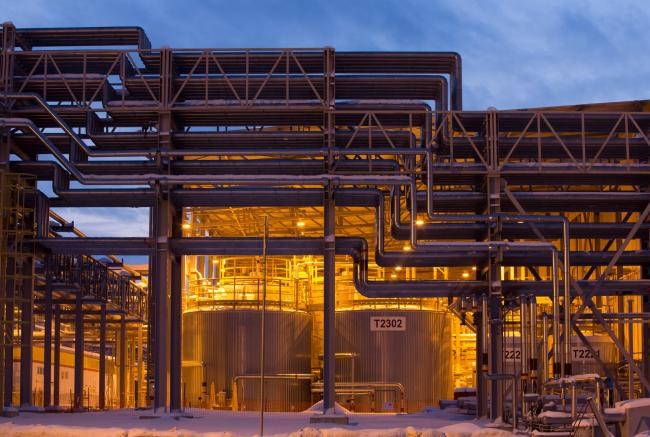(Bloomberg) -- OPEC continues to over-deliver on its production cuts, with output falling further last month as the group nears its goal of rebalancing the oil market.
The cartel pumped 31.93 million barrels a day, down from a revised 31.97 million in March, a Bloomberg News survey of analysts, oil companies and ship-tracking data found.
OPEC and a group of non-OPEC oil producers led by Russia are well into their second year of an agreement that’s boosted prices to the highest since 2014. While the deal is meant to continue until the end of this year, analysts at Goldman Sachs Group Inc (NYSE:GS). are among those saying there’s a possibility the cuts could be extended into 2019.
The drop in OPEC production was led by Iran. President Donald Trump may announce on May 12 a U.S. pullout from a 2015 nuclear deal that partially lifted sanctions on Tehran, potentially curbing the nation’s exports again. Some oil traders are already unwilling to sign contracts for Iranian crude and refined products that would be valid after that date, according to recent interviews with six companies that buy and sell oil in the Middle East.
Exports from Iran actually increased last month, due in part to the sell-off of crude cargoes the country had stored in tankers in the Persian Gulf.
Compliance Rates
Angola and Algeria also suffered production drops amid natural declines and planned field maintenance.
The compliance rate of the OPEC members that signed up to the cuts agreement struck in November 2016 was 168 percent in April, up from a revised 165 percent in March, the survey showed.
Output in Venezuela increased by 40,000 barrels a day as the Latin American nation imported more diluents to blend with its heavy crude. Despite the slight relief, the country’s production has dwindled amid a shortage of cash. The International Energy Agency forecast its production capacity may slide to 1.38 million barrels a day by year-end, the lowest since the 1940s.
Output from Saudi Arabia, OPEC’s biggest producer and de facto leader, was little changed at 9.9 million barrels a day.
